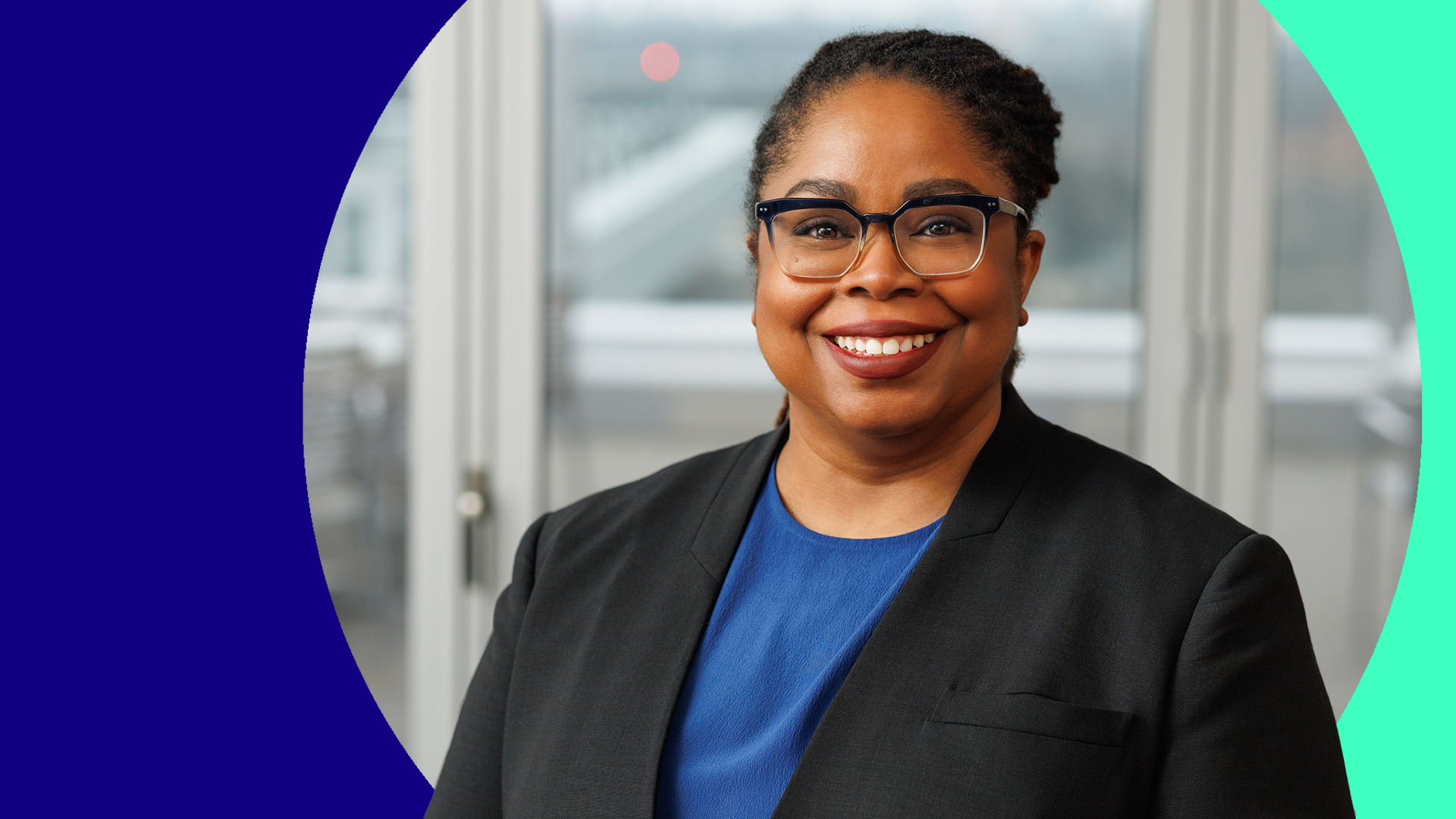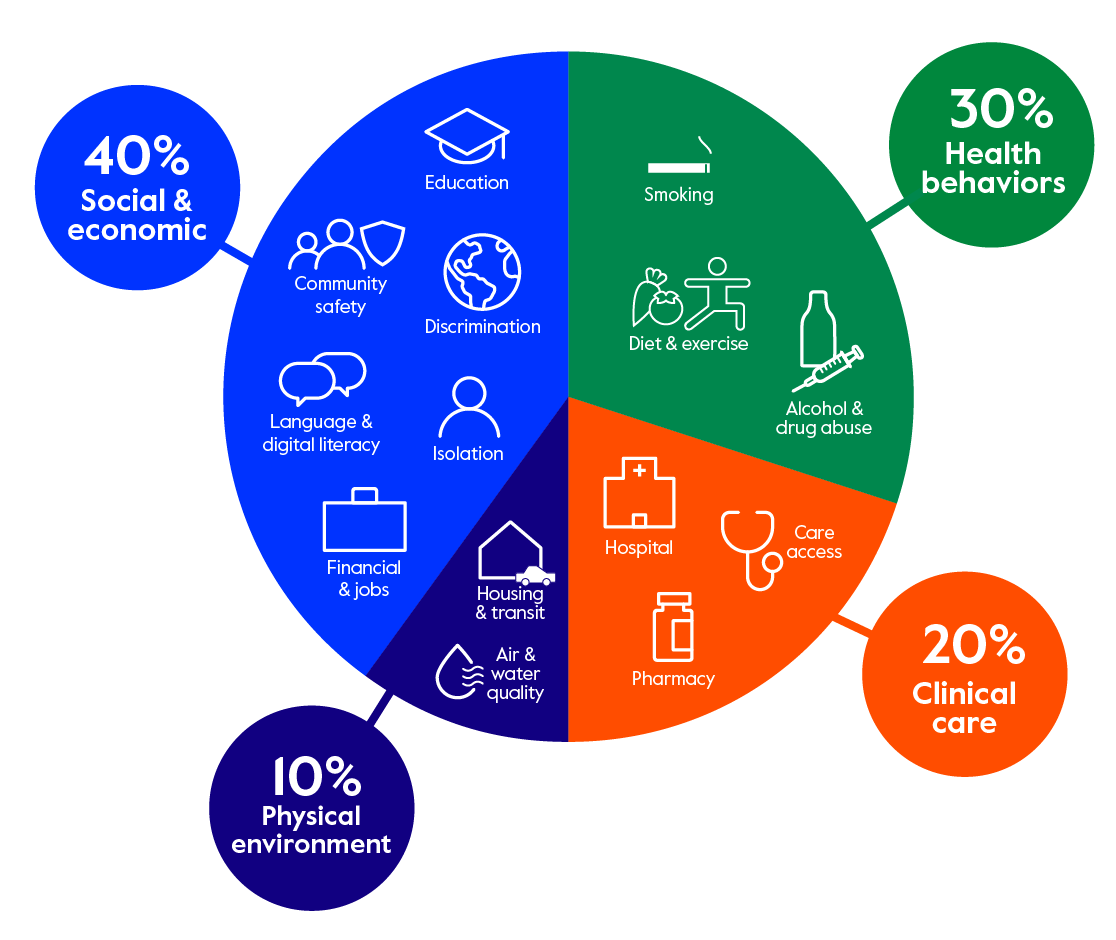
February is Black History Month, and The Cigna Group is celebrating the achievements and contributions of African American and Black health care leaders. These contributions are deeply embedded in the fabric and culture of The Cigna Group and ever-present in the work we do on behalf of our employees, our customers, and the communities we serve.
Today, The Cigna Group Newsroom staff is proud to spotlight a health care trailblazer: Dr. Ugwuji N. Maduekwe.
Dr. Maduekwe, a surgical oncologist and scholar educated at the Harvard-MIT Program in Health Sciences and Technology (HST), was the first Black woman to train as a general surgeon at the prestigious Massachusetts General Hospital – the first in the hospital’s 200+ year history. In addition to practicing as a surgeon, she’s committed to addressing health disparities for traditionally underrepresented communities through research and public health advocacy.
And now, she’s putting her expertise, research, and passion toward a new endeavor – joining forces with the health care industry as the new joint academic fellow for The Cigna Group and The Society of Black Academic Surgeons. The fellowship, now in its second iteration, aims to eliminate health disparities and promote diversity in health care leadership. Dr. Maduekwe will work with both organizations throughout 2024 to leverage data for research and public policy.
Read on to learn more about Dr. Maduekwe, her goals for the fellowship, and her commitment to addressing health disparities.
A career shaped by health equity
Dr. Maduekwe was born in Nigeria and came to the United States. as a teenager. Her path to a career in health care started early, with a fascination with viruses that cause cancer. That interest led to a degree in molecular and cellular biology from the University of Texas at Dallas, and eventually to Harvard Medical School for a joint medical and graduate program from Harvard and MIT, which enabled her to explore her passion for both research and treating patients.
From there, she went to Massachusetts General Hospital for training in general surgery, then to the University of Pittsburgh for complex surgical oncology training. Dr. Maduekwe’s skill set positions her at the forefront of health care innovation – she conducts highly complicated and technologically assisted procedures, including robotic surgery and cytoreductive surgery, which did not exist when she began her medical training.
As she completed her training and began to practice, she quickly saw that her patients, specifically those traditionally underrepresented including African American/Black and Hispanic/Latino patients, were subject to clear and disruptive gaps in care that were based on social determinants of health (SDOH).
“My personal and professional experiences have shaped my commitment to health equity, including firsthand exposure to the many disparities that exist for the African American/Black community, among other communities that are traditionally underrepresented,” Dr. Maduekwe said. She pointed to two experiences that opened her eyes to this inequity. In one of her first jobs as a general oncology surgeon, she worked for a safety net medical system that served many uninsured patients, predominantly from the African American/Black community.
Although Mass General, an area known for having some of the best doctors in the world, was less than 5 miles away from the safety net medical system, that short distance made a world of difference. Dr. Maduekwe was shocked and disappointed by the structural racial inequity – with a lack of available resources and passive culture that lacked a basic minimum standard of care – that was in clear contrast to the well-resourced and well-funded hospitals where she had trained. From there, she saw patients in rural areas. Although racial disparities were less present, issues related to access and transportation were unavoidable, she said.
“Many challenges exist when a patient lives seven hours away from their surgeon. Sometimes they're hesitant to call me, or they minimize their symptoms because they don't want to travel and they’re worried they’ll be admitted – and that affects their cancer outcomes,” she said. “We need to figure out how to meet patients where they are.”
While numerous factors can impede the quest for better health, physical, environmental, and social and economic factors have a more significant collective impact on health and health outcomes than clinical care. In 2024 and beyond, The Cigna Group expects to see a growing effort among organizations of all sizes, working with their health insurance and health services partners, to build equitable benefit plans that address SDOH – which include housing, transportation, education and income, access to nutritious foods, and language and literacy skills, to name a few.

SDOH are conditions and environmental factors that disproportionately affect populations impacted by health disparities, putting them at risk for experiencing worse health outcomes
Until that point, much of her research had been focused on improving the outcomes of care, Dr. Maduekwe said. But she quickly learned that better health outcomes are not fair if they're not available to everyone – and she was drawn into working for health equity.
Dr. Maduekwe shifted her research efforts toward health equity, earning a Master of Public Health degree from the University of North Carolina at Chapel Hill, exploring and publishing research related to health inequities in cancer surgery, including pancreatic cancer. Today, she lives in Milwaukee, Wisconsin, and works for the Medical College of Wisconsin, where she continues to practice as a general surgical oncologist and serves as associate professor of surgery for the division of surgical oncology. She also serves as the associate dean and deputy director of the Advancing a Healthier Wisconsin Endowment, a publicly funded endowment aimed at improving health outcomes across the state.
Harnessing data and analytics to help patients proactively
During her year as joint academic fellow, Dr. Maduekwe plans to leverage The Cigna Group’s array of health care data to publish academic research papers that will move the needle toward addressing health disparities. One of the areas she thinks holds tremendous opportunity is preventive analytics. Her dream is to work with The Cigna Group during the fellowship to build and strengthen proactive, not reactive, solutions to deploy for patients with cancer. This includes intervening and mitigating cancer diagnoses for communities disproportionately affected by cancer.
The Cigna Group and Dr. Maduekwe share this vision. For example, we currently use data and predictive models to help us identify customers at risk for certain health conditions. By aligning and activating health coaches and case managers with customers experiencing complex medical conditions based on these models, we can improve health literacy and other health-related social needs. This is true of our early cancer identification model for breast, lung, and colorectal cancers. This has improved our ability to identify patients earlier in their cancer journey so we can better support them with SDOH-related factors like transportation and access to quality health care, answer their medical questions, and help coordinate their care. And we are just scratching the surface of what’s possible.
“To begin work with The Cigna Group and learn they already have a health equity office has been very reassuring,” Dr. Maduekwe said. “I've had the opportunity to meet with a lot of leaders across the organization and to see that everyone is truly invested in this work, with some national solutions that can be deployed around health equity that they're willing to put resources behind. It already is more than I really was expecting, and I’m glad to see it.”
The Cigna Group’s commitment to health equity and ESG
Advancing a sustainable and equitable health care system is key in our vision of a healthy society as outlined in our environmental, social, and governance (ESG) strategy. We believe we can make the biggest impact by advancing health equity and transforming how care is accessed, delivered, and coordinated. For nearly 20 years, The Cigna Group has identified health disparities and influenced the development of inclusive benefits and solutions that result in more equitable health among our customers, our workforce, and in the community. Dr. Maduekwe’s joint fellowship is just one example of how we bring this strategy to life to drive positive change.
“For me, health equity is ensuring that everyone can receive the same care we would wish for our loved ones,” Dr. Maduekwe said. “Particularly when it comes to complicated and complex areas like oncology, everyone should have access to the best care and outcomes possible, and I don't think that that should be a radical idea.”

Health equity at The Cigna Group
For nearly 20 years, The Cigna Group has promoted the identification of health disparities and influenced the development of health equity solutions.